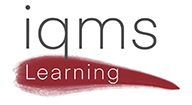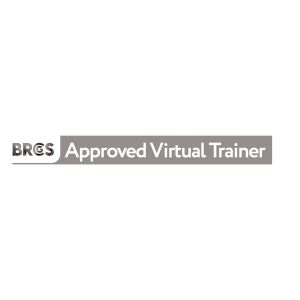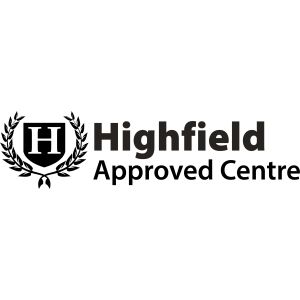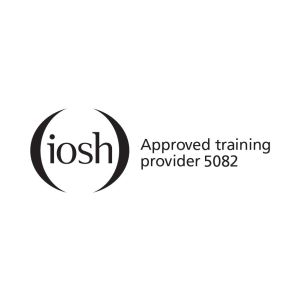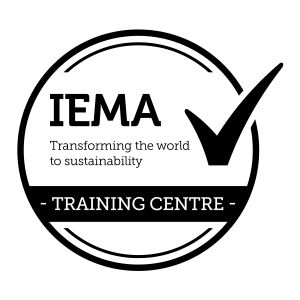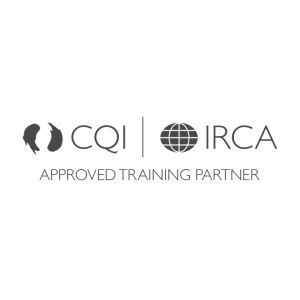This interactive CQI and IRCA Certified two-day training programme aims to help delegates to understand and apply the principles and techniques that are required for conducting effective environmental audits. A good system of auditing is one of the most effective methods of ensuring that the Environmental Management System (EMS) continues to meet its objectives and for control and for identifying improvements. Auditors need to be sufficiently competent in order to evaluate the EMS effectively if the organisation is to achieve the full benefit from its EMS and have confidence that it is achieving its objectives. This IRCA registered course focuses delegates on the most important attributes of a modern and effective environmental management system and helps them to understand the role of the auditor in its development and continual improvement. It introduces delegates to business environmental issues and relevant legislative issues. The course is based on auditing with the ISO 14001:2015 standard.Duration2 Days, 09.00 – 17.10 (day 1) 08.45 – 17.15 (day 2)Who should attend?This course is essential for those who will undertake internal environmental audits, or who will be required manage and implement internal audit programmes. Other people who find this course useful are team leaders and supervisors with EMS, who are looking to broaden their awareness of environmental issues in order to understand how they can improve their overall contribution to the success of the business. The course does not require any past auditing or environmental management system experience.Course objectivesTo enable delegates to effectively plan, perform, evaluate and report the results of internal environmental audits with confidence. To help delegates understand the key attributes of an efficient and effective environmental management system and the role of the internal auditor in its continual improvement and development.Course content Basic environmental thinking and risk-based concepts Structure and principles of an environmental management system Overview of key ISO 14001:2015 requirements Auditors roles and responsibilities Types of environmental audit Effective auditing techniques and good audit practices Reporting valid findings and managing corrective actions What are the benefitsThis course, combined with an ISO 14001 foundation course, satisfies the formal training requirements for those wishing to register under the CQI and IRCA Certified training scheme as an Internal EMS Auditor. Successful delegates will be equipped with the technical skills and knowledge required to plan, conduct and report internal EMS audits. Delegates also find the interactive nature of the course, it’s challenging content and extensive use of team-based exercises an enjoyable and effective way to learn.In-House CoursesOffering better value for money, they can be designed to closely match your specific requirements.Style of Delivery and Course LeadersA combination of presentations and guided exercises together with an interactive role-play exercise involving a simulated audit makes this course both highly beneficial and enjoyable for participants. Our course leaders are qualified and experienced environmental auditors with extensive practical management experience across a wide range of sectors including manufacturing, service and utilities, professional, local and national government. We have extensive experience working across cultural boundaries, through our work in Europe, Africa, the Middle East, Asia and the Americas.CertificationDelegates successfully completing the course will be awarded a CQI and IRCA Certified training certificate (2354).
Search for "internal auditor"
This IOSH accredited integrated management systems (IMS) internal auditor course combines the disciplines of quality, environmental and health & safety management auditing, based on the ISO 9001:2015, ISO 14001:2015 and ISO 45001:2018 standards. Whilst accredited auditing courses are available for single discipline auditors, integrated management systems auditing courses mostly do not award a certificate giving any recognition from a recognised body. This course is a four-day intensive and interactive training programme aimed at developing practical and proficient auditing skills with an audit simulation on the final day. Designed for those who need to be able to apply recognised principles and techniques of effective management system auditing and to fast-track their development to be able to conduct effective audits of their integrated management system. Internal auditors need to understand their role and responsibilities and be sufficiently competent in evaluating the IMS effectively. The modern management systems auditor needs to be able to audit processes with an emphasis on risk-based thinking to ensure the integrated management system (IMS) continues to meet its objectives. By the end of the course delegates will be well-equipped to contribute to continual improvement of system and performance.Duration4 days, 8.30 – 17.15Who should attend?This accredited course is essential for those who are responsible for undertaking internal integrated management system audits based on the ISO 9001:2015, ISO 14001:2015 and ISO 45001:2018 standards. An essential course for those who will be required to plan, manage and implement internal audit programmes based on the quality, environmental and OHS standards. Other people who will find this course useful are managers, team leaders and supervisors, who are looking to broaden their awareness of QHSE systems and audits, gaining an understanding of how they can improve their overall contribution to the success of the business. The course does not require any past auditing or quality, environmental or health & safety management system experience.Course objectivesUpon successful completion of this course, students will: Understand the purpose and benefits of management systems Have a greater understanding of the structure, content and the intent of ISO 9001, ISO 14001 and ISO 45001 (including aspects/impacts, hazards/risk and the regulatory framework) Be familiar with the terms and definitions used in auditing systems Have a greater understanding of the concept of the process model and apply the process approach Be aware of all stages of the audit cycle Gain the knowledge and skills necessary to plan, conduct, report internal audits of management systems Express what audit documentation is required to complete effective audits and the elements of what an audit report should contain. Effectively follow-up and close out audit non-conformances What are the benefitsUpon successful completion delegates will be equipped with the technical skills and knowledge required to plan, conduct and report internal integrated management systems audits, saving both time spent on auditing and cost to your organisation. Delegates will also find the interactive nature of the course, it’s challenging content and extensive use of team-based exercises an enjoyable and effective way to learn.In-House CoursesOffering better value for money, they can be designed to closely match your specific requirements.Style of Delivery and Course LeadersA combination of presentations and guided exercises together with an interactive role-play exercise involving a simulated audit makes this course both highly beneficial and enjoyable for participants. Our course leaders are IRCA/IEMA qualified and experienced quality, environmental and occupational health & safety management systems auditors with extensive practical management experience across a wide range of sectors including manufacturing, service and utilities, professional, local and national government. We have extensive experience working across cultural boundaries, through our work in Europe, Africa, the Middle East, Asia and the Americas.CertificationDelegates successfully completing the course, including examination will receive an IOSH certificate.
This integrated management systems internal auditor programme combines the disciplines of quality and environmental management systems. The course is based on auditing to the ISO 9001:2015 and ISO 14001:2015 standards. This interactive three-day training programme is designed for those who need to be able to understand and apply recognised principles and techniques of effective management system auditing for quality and environmental management systems. The modern management systems’ auditor needs to be trained not only on procedural auditing, but also be able to audit processes with an emphasis on a risk-based approach. An effective audit will bring benefits to your organisation and ensure the integrated management system (IMS) continues to meet its objectives. Internal auditors need to understand their role and responsibilities and be sufficiently competent in evaluating the IMS effectively. This course focuses delegates on the most important attributes of an IMS and helps them to understand the role of the auditor in its development and continual improvement.Duration3 days, 9.00 – 17.30Who should attend?This course is an essential for those who will undertake internal integrated management system audits based on the ISO 9001:2015 and ISO 14001:2015 standards, or who will be required to plan, manage and implement internal audit programmes. Other people who find this course useful are team leaders and supervisors within the IMS, who are looking to broaden their awareness of quality and environmental issues in order to understand how they can improve their overall contribution to the success of the business.Course objectivesUpon successful completion of this course, students will: Understand the purpose and benefits of management systems Have a greater understanding of the structure, content and the intent of ISO 9001 and ISO 14001:2015 Be familiar with the terms and definitions used Have a greater understanding of the concept of the process model and apply the process approach Be aware of all stages of the audit cycle Gain the knowledge and skills necessary to plan, conduct, report internal audits of management systems Course content Overview of ISO 9001:2015 quality and ISO 14001:2015 environmental Management System requirements Plan-Do-Check-Act methodology Quality and environmental management principles Risk-based thinking Auditors roles and responsibilities Types of audits Effective auditing tools and techniques and good audit practices Reporting valid findings and managing corrective actions What are the benefitsSuccessful delegates will be equipped with the technical skills and knowledge required to plan, conduct and report internal integrated management systems audits, saving both time spent on auditing and cost to your organisation. Delegates also find the interactive nature of the course, it’s challenging content and extensive use of team-based exercises an enjoyable and effective way to learn.In-House CoursesOffering better value for money, they can be designed to closely match your specific requirements.Style of Delivery and Course LeadersOur course leaders are quality management professionals, as well as being qualified, registered and experienced auditors. They have extensive knowledge across a wide range of sectors including manufacturing, finance, pharmaceuticals, local and national government. They have all cut their teeth as successful change agents within high profile organisations, and fully understand the range of technical, legislative and people challenges that face those with a responsibility for delivering real quality improvements.CertificationDelegates successfully completing the course will be awarded an iqms Learning Integrated Management System (IMS) Auditor certificate.
This integrated management systems internal auditor programme combines the disciplines of quality, environmental and health & safety management auditing based on the ISO 9001:2015, ISO 14001:2015 and ISO 45001:2018 standards. This three-day interactive training programme is designed for those who need to be able to understand and apply recognised principles and techniques of effective management system auditing to quality, environmental and health & safety management systems. The modern management systems auditor cannot rely on procedural auditing, but also needs to be able to audit processes with an emphasis on risk-based thinking. An effective audit will bring benefits to your organisation and ensure the integrated management system (IMS) continues to meet its objectives. Internal auditors need to understand their role and responsibilities and be sufficiently competent in evaluating the IMS effectively. This course focuses delegates on the most important attributes of an IMS and helps them to understand the role of the auditor in its development and continual improvement.Duration3 days, 9.00 – 17.30Who should attend?This course is essential for those who will undertake internally integrated management system audits based on the ISO 9001:2015, ISO 14001:2015 and ISO 45001:2018 standards, or for those who will be required to plan, manage and implement internal audit programmes. Other people who will find this course useful are team leaders and supervisors within the IMS, who are looking to broaden their awareness of quality, environmental and occupational health & safety issues to understand how they can improve their overall contribution to the success of the business. The course does not require any past auditing or quality, environmental and health & safety management system experience.Course objectivesUpon successful completion of this course, students will: Understand the purpose and benefits of management systems Have a greater understanding of the structure, content and the intent of ISO 9001 and ISO 14001:2015 Be familiar with the terms and definitions used Have a greater understanding of the concept of the process model and apply the process approach Be aware of all stages of the audit cycle Gain the knowledge and skills necessary to plan, conduct, report internal audits of management systems Course content Overview of ISO 9001:2015 quality, ISO 14001:2015 environmental and ISO 45001:2018 occupational health & safety management system requirements Plan-Do-Check-Act methodology Quality and environmental management principles Risk-based thinking Auditors roles and responsibilities Types of audits Effective auditing tools and techniques and good audit practices Reporting valid findings and managing corrective actions What are the benefitsSuccessful delegates will be equipped with the technical skills and knowledge required to plan, conduct and report internal integrated management systems audits, saving both times spent on auditing and cost to your organisation. Delegates also find the interactive nature of the course, its challenging content and extensive use of team-based exercises an enjoyable and effective way to learn.In-House CoursesOffering better value for money, they can be designed to closely match your specific requirements.Style of Delivery and Course LeadersOur course leaders are management systems professionals, as well as being qualified, registered and experienced auditors. They have extensive knowledge across a wide range of sectors including manufacturing, finance, pharmaceuticals, local and national government. They have all cut their teeth as successful change agents within high profile organisations, and fully understand the range of technical, legislative and people challenges that face those with a responsibility for delivering real quality improvements.CertificationDelegates completing the course will be awarded an iqms Learning certificate.
